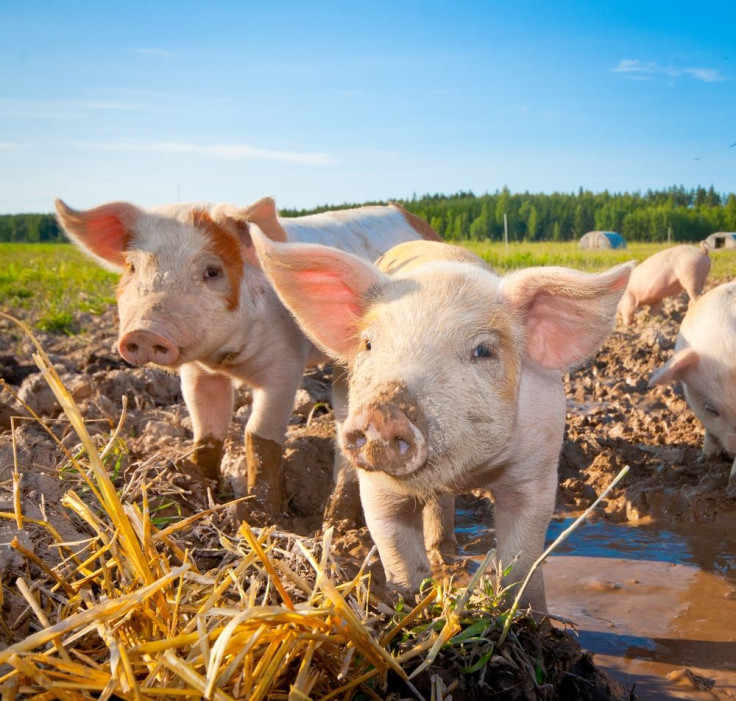Chinese Company BGI Is The World's Biggest Pig-Cloning Factory And Genome Sequencing Project

The southern coastal city of Shenzhen is known for being one China’s biggest manufacturing hubs. And it's also home to the world’s largest “cloning factory.”
While cloning is not exactly novel, the company that owns the cloning farm, BGI, put a modern Chinese twist to it: mass production. The BBC reports that the farm produces an astounding 500 pig clones annually in a process called “handmade cloning.”
The BBC’s David Shukman was given a tour of the facilities, which in general, look like the average farm, with railings and pens to hold animals. But in rooms just adjacent to the pig pens, Shukman gets a surprisingly open look at what goes on behind the scenes. Sows are set on their backs on operating tables and are fitted with oxygen masks and prepped for surgery and anesthetics. Soon after, two technicians insert fiber-optic probes to locate the pig’s uterus to be implanted with blastocysts, or lab-developed early-stage embryos. This is BGI’s biggest invention; the process eliminates thousands of dollars of equipment, and also greatly speeds up the process of cloning.
“We can do cloning on a very large scale,” Dr. Yutao Du, the scientist in charge, says in the report. “Thirty to 50 people together doing cloning so that we can make a cloning factory here.”
The report describes a well-practiced procedure. Despite being watched by journalists and cameras, technicians nonchalantly go about their work -- and considering the amount of cloning operations they do, at around two per day, it is also makes it seem routine. The success rate of the implantations is 70 to 80 percent, the report says.
In another shed were several baby piglets, most of whom have been genetically modified, under heat lamps. Several of the pigs are first-generation clones; others are clones of clones. Regardless of how the pigs came to be, they are all there for one reason: to be tested on for new medicines. Genetically, pigs are very similar to humans, making them a reasonably accurate model for testing human medications.
What was once a shoe factory is now not only the world's biggest and possibly first “cloning factory,” but also the world’s largest center for gene sequencing, with machines running 24 hours a day analyzing gene sequences. BGI has plans to sequence the genomes of a million people, a million animals, and a million plants, which is an ambitious task considering other genome projects, like one in the UK, aim to sequence 10,000 humans.
BGI’s CEO, Wang Jun, says the information learned from the massive cloning and gene sequencing project has the potential to help a wide variety of industries, from improving pharmaceuticals to making food taste better. And when it comes to food, BGI’s own cafeteria is where food products are tested.
“If it tastes good you should sequence it,” Wang said.
© Copyright IBTimes 2024. All rights reserved.












